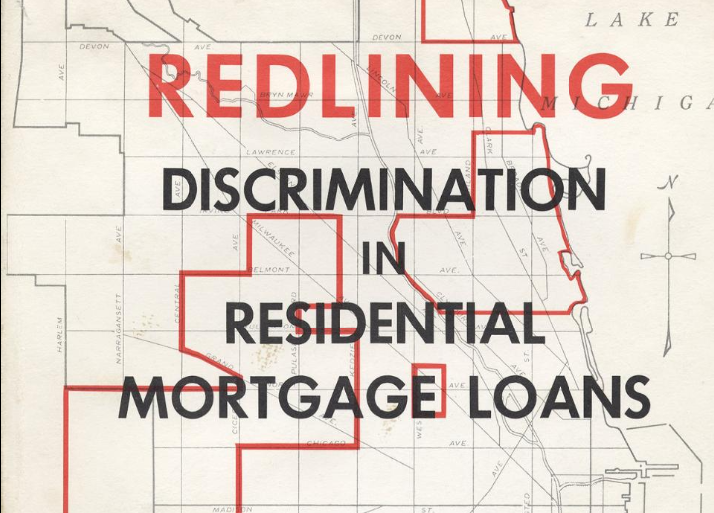What different perspectives are there on how our geographic, social, economic, and political landscape changed over time and on the benefits and costs of those changes?

This week, the Chicago History Museum joined the Illinois Civics Hub (ICH) to explore Theme 2 of the Educating for American Democracy (EAD) Roadmap- Our Changing Landscapes. This theme demonstrates the intersections of civics, history, geography, and economics to explore the question, “What different perspectives are there on how our geographic, social, economic, and political landscape changed over time and on the benefits and costs of those changes?” The Chicago History Museum used the issue of redlining in Chicago to demonstrate how students could use historical thinking, geographic reasoning, economic decision making, and civic-mindedness to explore issues of justice, power, freedom, and equity through inquiry.
Redlining, according to the Merriam-Webster Dictionary, is, “to withhold home-loan funds or insurance from neighborhoods considered poor economic risks.” The Chicago History Museum further explains in one of its Chicago Stories Every Day blog posts titled Boxed In:
While discriminatory practices had long existed in the banking and insurance industries, the term came into use in the 1930s when the New Deal’s Home Owners’ Loan Corporation (HOLC) instituted a redlining policy by developing color-coded maps of American cities that used racial criteria to categorize lending and insurance risks. New, affluent, racially homogeneous housing areas received green lines, while Black and poor white neighborhoods were often indicated by red lines denoting their undesirability.
The webinar with the Chicago History Museum explored the legacy of redlining, how its impact is still in evidence today, and efforts to “undesign the redline.” If you missed the webinar, you can access a recording on the ICH Webinar Archive.
To learn more about redlining, the Chicago History Museum curated this list. You might also consider the following resources:
- Listen to this NPR story by Terry Gross on A ‘Forgotten History’ Of How The U.S. Government Segregated America from 2017.
- Watch this segment from CBS News on Redlining’s legacy: Maps are gone, but the problem hasn’t disappeared from 2020.
- Learn more about a past exhibit at the Federal Reserve of Chicago Money Museum, “Undesign the Redline” from Crain’s Chicago Business.
- Explore this series of interviews with Gale Cincotta of National People’s Action, a community activist organization working on issues of housing and employment, and Tom Fox from the Studs Turkel Radio Archive at WFMT.
It is not too late to register for the rest of our Illinois Civics Hub summer Professional Development series. There are two strands of professional development. On Tuesday mornings, powerful pedagogy will be the focus to help with summer curriculum projects. Wednesday morning webinars will put the spotlight on some of the leading civic learning providers in the nation. Each session begins at 9:30 a.m. CT. Educators can join live to interact with participants or watch a recording. The webinars are free, and Illinois educators can elect to earn PD credits for attending the webinar and completing a brief, post-webinar application activity.
A description for each webinar and information to register for professional development credits through the DuPage Regional Office of Education is available on the Illinois Civics Hub Professional Development Calendar.
